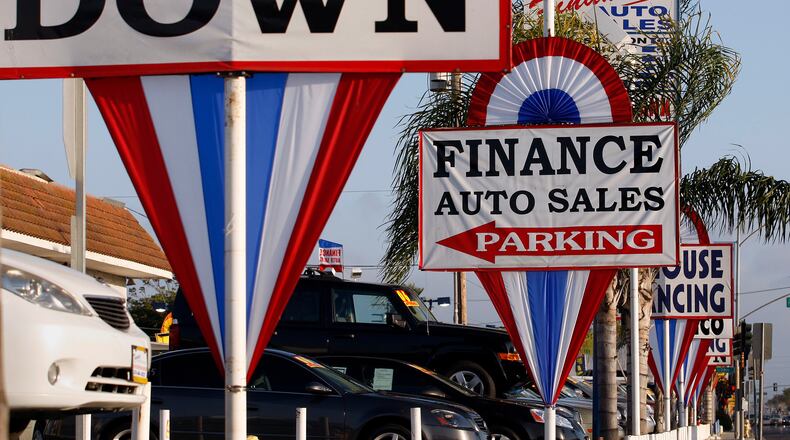Georgia’s population has grown and sales have jumped since the General Assembly agreed to phase out annual property taxes on cars five years ago with the promise that new taxes when vehicles are titled would make up the difference.
But a new analysis by Georgia State University suggests vehicle tax revenue declined in more than half of Georgia’s counties in the years after the change. State government, meanwhile, wound up with a windfall, taking in about $1 billion in 2016.
One of the reasons: phasing out property taxes had little effect on the state because almost all property taxes are collected by local governments. The overall car tax take for cities, counties and school districts was down about $170 million in 2016 from 2012, when the change was made.
The analysis by Laura Wheeler, a senior research associate at GSU’s Fiscal Research Center, suggests roles will be reversed in future years — local governments will make up some lost ground and the state will take in less as the law adjusts the split of revenue.
Before the 2012 change, Georgians paid annual property taxes on vehicles and sales taxes on purchases if they bought from dealers. Under the new system, car buyers pay a title tax, whether they buy from a dealer or their next-door neighbor, a change the politically powerful car dealers’ lobby had been fighting to get approved for decades.
Dealers thought it unfair for them to have to charge sales taxes when Georgians could buy from individuals and avoid paying them.
Vehicle owners also pay a title tax when they move in from another state and register their cars.
Georgians who haven’t bought a car since the change continue to pay property taxes, which have long been called the “birthday tax” because they are due on the owner’s birthday. No property taxes are paid on cars — new or used — once they are purchased and titled in the new system.
According to the analysis, the state was starting to recover from the Great Recession when the change was made, and the value of cars and trucks purchased rose from about $24 billion in 2012 to $34 billion in 2016.
Because those who bought cars no longer had to pay property taxes, the amount of vehicle property taxes collected by local governments declined from $811 million in 2012 to $280 million in 2016, the report said. That figure is expected to continue to fall as Georgians buy vehicles.
The state and local governments split the title tax money, but it’s not a 50-50 split. The state has received a bigger share, but locals are being promised that will be reversed in coming years, in large part to make up for the loss of vehicle property tax money.
Clint Mueller, a lobbyist for the Association County Commissioners of Georgia, said the thing in GSU’s analysis that stands out is that 99 counties — and with them hundreds of their cities and school districts — got less motor vehicle money in 2015 than they did in 2012, when the change was made. That meant about $75 million in lost revenue, the report said. The dip occurred at a time when Georgians were buying more cars.
“When that (the sale of cars) goes down again, it is going to have a big effect very quickly,” Mueller said. “We’ve just gotten lucky so far.”
That could blow a big hole in governmental budgets.
The Georgia House this year passed a bill that would have lowered vehicle taxes on newcomers to the state — called the “welcome to Georgia” tax — and set fixed percentages for the split of title money by the state and local governments, but the measure stalled in the Senate.
The bill also would have charged used-car buyers the title tax on the sales price of the car or truck sold by a dealer.
New cars are currently taxed based on that formula, whereas used cars are usually taxed at the typically lower book value. The used-car lobby worked overtime to kill that provision, and in the end, it was successful.
About the Author
Keep Reading
The Latest
Featured




